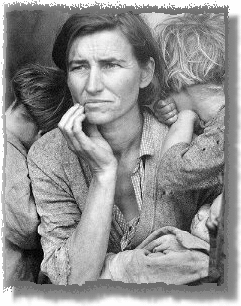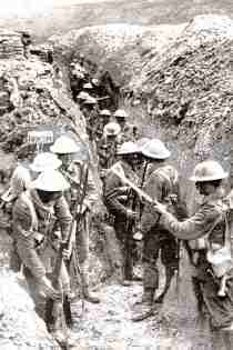Fredy Neptune: A 20th Century Theodicy
Evil is understood as a problem when we seek to explain why it exists (Unde malum?) and what its relationship is to the world as a whole. Indeed, something might be considered evil when it calls into question our basic trust in the order and structure of our world. For theists, the problem of evil is intimately involved with the nature and purpose of God in allowing it, often called a theodicy [from the Greek words theos (God) and dike (righteous)]. A theodicy is an attempt to justify or defend God in the face of evil by answering the following problem, which in its most basic form involves these assumptions:
-
God is all good and all powerful (and, therefore, all knowing).
-
The universe/creation was made by God and/or exists in a contingent relationship to God.
-
Evil exists in the world. Why?
Notice what this problem suggests. It begins with the assumption that such a being as God will want to eliminate evil. If God is all good but not all powerful or knowing, then perhaps he doesn’t have the ability to intervene on every occasion. Likewise, if God is all powerful and knowing but not all good, then perhaps he has a mean streak. If God is somehow all these things, but the universe does not exist in a contingent relationship, then God has little to do with evil (even though God’s design can still be faulted). However, if God is both good and powerful, then why does evil exist? There are a number of classic Christian approaches to this question:
Classic and Contemporary Christian Responses to the Problem of Evil

I. The Free Will Defense: God wanted us to freely love him, which meant allowing for the possibility that we might choose against him. And we have--all of us since Adam and Eve. Free will provides a great good—self-determination--and carries with it significant responsibility, which is also a great good. This is especially true of relationships involving love: such must be entered into freely. Evil is an unfortunate result of human free will. If God were to intervene at every point of our wrongdoing, our free will would be compromised. So evil in the world is not entirely God's fault; however, this position does not claim that God is not responsible in any way for evil. If you have the power to intervene and do not, that implies choices.
II. The Soul Making Model: We are incomplete souls in need of improvement and growth. Notice that this model also assumes free-will (Michael J. Murray calls the former "consequent free will" theodicies and soulmaking versions, "antecedent condition free will" theodicies.). Evil is a necessary condition for a world in which we overcome obstacles and struggles in order to develop. In fact, many higher-order goods (e.g. self-sacrifice, endurance, courage, compassion on the poor, etc.) are not possible unless we have to overcome evil. This model points out that God often allows the condition of suffering to improve us. We become purified through life's trials. Some versions of this suggest that our purification and growth will continue in the afterlife.
III. The Possible Worlds/ Great Design Argument: This suggests that God designed the world in such a way that it included the possibility of evil, but that if rightly perceived, we would understand that all of it works together for a greater good. This is a subset of the first two because both models assume a world in which moral action/ growth is both possible and meaningful. Namely, a world with free will and the possibility of soul making is a better world than one with only automatons.
There are a number of approaches taken within this model. One approach is to stress the need for world that has regularity in it. There must be a cause and effect for our actions. Thus, evil can have both actual and possible justifications. Actual evil has its purpose in be necessary for some greater moral purpose, while possible evil warns us against the consequences of our actions (e.g. putting your finger in an electrical socket.) This raises a number of issues, including:
- Couldn’t God have created a world in which we are free and/or our souls improve and yet we always choose the good?
- Why can’t God intervene when evil is committed yet still maintain our freedom or soul improvement?
- Is human freedom really justified? Are we free enough for our moral choices to be meaningful?
Those who take the soulmaking or free-will position tend to respond by pointing out that it is impossible to actually imagine such a world, that free will makes no sense in a context where God is always intervening, and that significant freedom must have real consequences.
IV. The Eschatological Hope: Granting all the above, God has also promised that such evil and suffering is only for a finite time in human history. God will bring an end to it all, and evil will be rightly answered by its destruction. Furthermore, the future hope that God offers will judge, compensate and/or at least put into perspective this present world’s evil. Of course, this model raises the question as to whether good can be said to actually "balance off" evil and suffering. This is alternately understood as either the afterlife and/or the final state of all things.
An extension of this is that the Church should be a community that looks to that future justice by modeling it now: believers are to avoid fatalism and work toward God's promised shalom, a future of perfect peace and justice.that begins in God’s work on the cross. Resistance to evil and suffering can be a form of obedience to God.
V. The Suffering of God Response: This response assures us that God has not abstracted himself from the human situation--that he, too, suffers with us. God weeps for Israel, the Holy Spirit grieves over sin, and Christ suffered for us that we might have an example of how to undergo suffering. Strictly speaking, this response isn’t about justifying why God allows evil, as much as affirming that God is involved in the problem. Some have suggested that God’s suffering teaches us to move from self-absorption to cooperation and compassion for others in their suffering. In this view God’s own suffering absorbs our hostile self-absorption. Others have gone farther, arguing that God actually feels and experiences our suffering and, by doing so, honors us as the infinite God and that this honoring actually addresses our experience of evil and suffering by defeating it in our own lives.
Not all theists accept the idea that God suffers, pointing to what has been called the impassability of God, that God being an eternal, infinite, perfect being is without change and, therefore, without suffering. And there is something to be said for this. If we hold that God suffers, it must be on a completely different level than ourselves. The question, then, becomes how does God suffer for us and with us and because of us. Marilyn McCord Adams argues that Christ suffers at two levels—in his godhood and in his humanity. In this way, Christ suffers like us as a human, even as he also suffers in another mysterious way as part of the Godhead. Some have suggested, following the lead of Paul, that Christ’s suffering on the Christ included the total experience of all human suffering. And Jürgen Moltmann goes so far as to suggest that Christ’s experience of separation from the Father on the cross actually allows the Trinity to experience that ultimate element of human suffering—separation from God.
VI. A Theology of the Cross: Contained in each view of the suffering of God above is a suggestion that in some fundamental way the work of the cross is God’s answer (or one of his answers) to the problem of evil, even that the cross is the only justification God gives of his responsibility for the existence of evil. In this sense, the work of redemption transcends the role of Christ’s suffering, for the cross is atonement for, victory over, and judgment upon evil and sin.
VII. Faith and Trust: Sometimes called simple fideism—this position is one that seeks not to answer the question in any complex way but rather affirm basic Christian truths, such as God is ultimately good; God has everything under the divine control; God is to be trusted despite life’s trails and difficulties.
VIII. A Theodicy of Protest: This position is one that complains to God, objecting that God could have and on the surface should have intervened in any number of horrific circumstances. The sheer weight of atrocity is often cited. Some versions of this try to escape the classic problem by denying that God is all-loving, or at least appears to be (cf. Roth and Blumenthal). But perhaps it would be better to understand this position as speaking from a wounded position. The believer says to God, "As best I can understand from my limited position you appear to have allowed horrible things to happen. Why? Should you do such a thing?" Then, rather than walk away in disgust or disbelief, the believer waits on God. This is an approach modeled for us in the Psalms. Believers protest from the ground of covenant—this is what God has promised us and who he is; therefore, should not God intervene? (i.e. Ps 44, 74, 88, 102, 142) This position at its best seeks to continue to affirm God’s mystery and goodness even amidst confusion and doubt. Likewise, this position holds it important to identify with the suffering of others, not to make light of their pain by seeking easily to explain it.
IX. Disavowal of Theodicy: This position argues from a number of different directions that the theodicy project is misfounded. Some suggest that theodical language tends to deny, trivialize, or downplay the suffering of others. Or theodicy is seen as a mistaken approach to the problem because it results in closing down what only God can truly answer. For some theodicy, if done at all, must be done within the praxis of sufferers, while theoretical discussions are guilty of the above.
For others, theodicy is misfounded because one cannot "justify" the supreme being. John Philip Yoder goes so far as to suggest that theodicy is a from of presumption and idolatry because it seeks to judge God by human standards and ignores the biblical understanding of Christ’s suffering and his mission for his kingdom.
Theodician Passages in Fredy Neptune

5--The burning of the Armenian women
15--His personal "death" in numbness
19-20--The Armenian genocide/ What God has to stare into
27--The ethnic division of the world
36--The Nine Miles of Dead
44--"Do all these big poems burn woman?"
56--The death of Frank, Fredy's brother
78--"Nothing a mob does to someone is funny."
80-81--Killing for Empire & Numbness
92--Racism and more numbness
110--Dream of blackened women
126-127--Fredy must confront his own self-deception
 128-129, 136--Bulba's grief at news of the Ukraine
128-129, 136--Bulba's grief at news of the Ukraine
147-148--Vision of Iowa/ "Jesus came to lose."
157-158--Family praises God for deliverance, but Fredy loses flat
166-Clay's awful death
170--"The death and killing world"
179-180--Rumors of the thousands killed
200-203--The terrible times upon them
209-210--Horror at the newsreels
211--Fire & Nations; The Day of Judgment
218-219--Thinks of trenches filled with human blood
225--Wrong to call his shock and numbness "the Nothing"
230--The murder of the Catholic missionaries
239--Hard to pray for one boy among the millions
244-246--The Dresden firebombing, the Holocaust, and the Atom Bomb
253-255--His forgiveness/release of the victims and God
Key Question: How does Murray's verse novel present the problem(s) of evil and theodicy? What is Fredy's "solution"? Do you agree and/or disagree?
